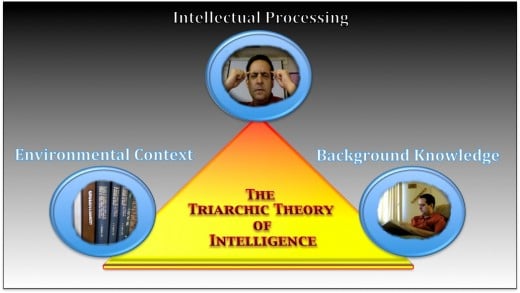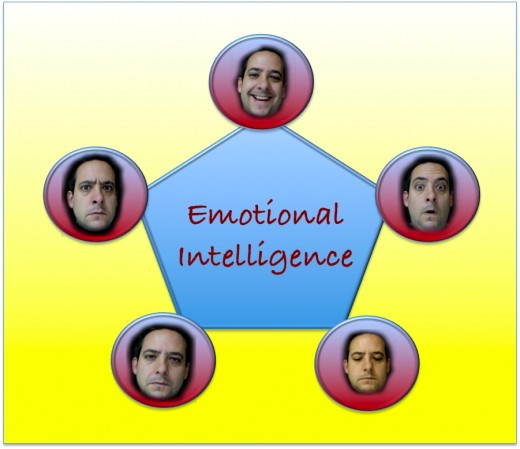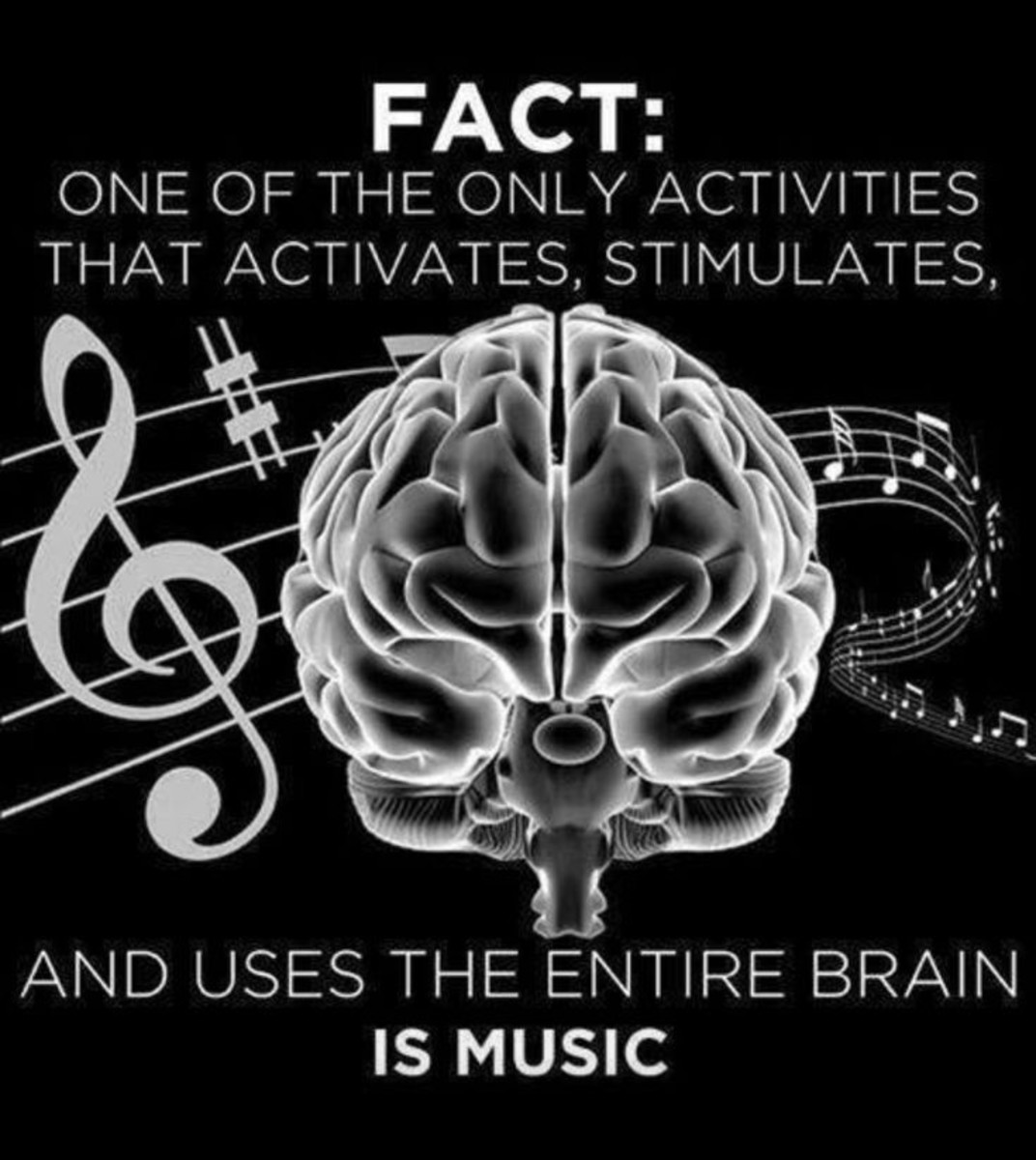The Emotional, Distributed, and Triarchic Theory of Intelligence
On the Triarchic Theory of Intelligence, Distributed Intelligence & Emotional Intelligence:
Note: This is part six of a series of articles that examine the relationship between music and the brain by integrating scholarly work on the philosophy of music with research in the psychology of emotion and intelligence. Part six examines Robert Sternberg's Triarchic Theory of Intelligence, Distributed Intelligence and Emotional Intelligence. All parts can be read independently, though they may make references to other parts. Please click here for an overall abstract and links to the rest of the parts in the series.
Table of Contents
Robert Sternberg's Triarchic Theory of Intelligence

In Beyond IQ, Sternberg conceptualizes intelligence in a way that is broader than any of the theories we have examined so far. He splits intelligence into three primary components: the environmental context of the individual, the background experience and knowledge of the individual, and the intellectual processing power of the individual. These three components combined make up the triarchy of his theory. To each of these sub-theories he delegates certain abilities that, taken together, define intelligence.

On the Environmental Context Sub-Theory
The importance of the environmental context of the individual to intelligence involves the individual’s behavior within his environment. All human activity is manifested in a specific cultural environment, so all manifestations of intelligent behavior are situated in a cultural context as well. The given environment can have a profound effect on the actualization of intellectual pursuits because it determines what avenues of intellectual pursuit are available, how much value is placed on each of those pursuits, how accessible education is, and even what raw materials and intellectual capital (libraries, storytellers, apprenticeships, and colleges) are available for the development of a given ability.[1]
The effect of the individual’s cultural context is balanced by his ability to interact dynamically with his environment. Sternberg suggests that one of the human abilities that makes us intelligent is our ability to be purposive in dealing with what our culture presents to us. We can choose to take an interest in some things while ignoring others. Human beings also have the ability to be amazingly adaptive to changes in their environments. That is, we can change certain things about ourselves to deal with the outside world more effectively. Therefore, according to the first sub-theory of Sternberg’s theory of intelligence, intelligence inheres both within the cultural surround itself and in one’s ability to interact dynamically with that surround.[2]

On the Background Knowledge Sub-Theory
The second sub-theory of Sternberg’s triarchy describes how background knowledge and experience come into play with intelligence. When one is first dealing with any activity, be it learning to ride a bike, memorizing the multiplication tables, or studying the theory of relativity, a great deal of time must be spent on consciously thinking about the activity. As one becomes more familiar with the material or activity, however, one develops a kind of unconscious understanding of some of the details and no longer has to spend conscious energy on them, which allows one to deal with deeper or more complicated issues. With experience, knowledge and procedures can become automated and accessible for immediate recall. Background knowledge and procedural experience can then be put to use as the mind becomes free to concentrate on higher-level work.
From this perspective, Sternberg considers how background knowledge and experience can bring insight to the present work of intelligence. He describes three components of insight: selective encoding, selective combination, and selective comparison. Selective encoding involves sorting out what information is relevant to a given pursuit and, therefore, needs attention from the information that is extraneous. Prior experience in an area allows one to identify the difference much more quickly. Determining what information can be brought together usefully and how that connection can be made is the work of selective combination. Once again, the more familiar with the material of a given activity an individual is, the deeper his understanding and, therefore, his potential for taking advantage of opportunities to employ creative synthesis will be. Finally, the broader one’s background knowledge is, the more likely it is that one will be able to employ known methods of problem solving to novel situations which is at the root of selective comparison.[3]

On the Intellectual Processing Sub-Theory
The intellectual processing sub-theory of Sternberg’s approach to intelligence consists of mental components. Sternberg specifically describes the concept of a component as:
…an elementary information process that operates upon internal representations of objects or symbols. . . . The component may translate a sensory input into a conceptual representation, transform one conceptual representation into another, or translate a conceptual representation into a motor output.[4]
Essentially, a component is a mental process that manipulates some kind of information by applying, relating, or changing it. It is under this sub-theory that Sternberg places the actual procedures of the mind that allow it to integrate background experience with a given cultural context to understand and create knowledge.[5]
Unlike Gardner’s Multiple Intelligences, none of the sub-theories of Sternberg’s conception of intelligence operate independently. Instead, they function alongside one another, dynamically interacting and creating new understandings. In this way, Sternberg presents a different kind of insight into intelligence by revealing it as the interaction between the powers of the individual mind, past experience, and present environment.
Distributed Intelligence
Distributed intelligence is more a perspective for looking at intelligence than it is a specific theory. Proponents of this perspective hold that, as was described in Sternberg’s environmental context sub-theory, much of intelligence can be found in the cultural context surrounding an individual. Theories of distributed intelligence take particular interest in the people and objects that can aid in intellectual learning and development such as parents, teachers, friends, textbooks, computers, laboratories, etc.[6] Howard Gardner articulates this particular interest of distributed intelligence theories very well: “One must conceive of the individual and his culture as embodying a certain stage sequence, with much of the information essential for development inhering in the culture itself rather than simply inside the individual’s skull.”[7] While the specific theories of this division of scholarship on intelligence are not centrally important to this work, the general perspective it takes has value because it sheds light on another prominent aspect of intelligence that is generally unrecognized by the traditional view of intelligence.
Emotional Intelligence

Emotional intelligence is also more of a general conceptual approach than a specific theory. There are, however, a number of beliefs that are common to all theories of emotional intelligence. Perhaps the most central is stated here by Keith Oatley and Jennifer M. Jenkins in Understanding Emotions: “Though previous ideas about emotions stressed their disruptiveness, modern views are generally that emotions are, for the most part, functional.”[8] Scholars in this area have suggested recently that emotions, which have no place in the primarily rational traditional view of intelligence, are central to the successful and productive application of any intellectual pursuit, be it rational or otherwise. This is so because “emotions are not extras. They are the very center of human mental life. . . . emotions link what is important for us to the world of people, things, and happenings.”[9] Where intelligences like Gardner’s logical-mathematical intelligence, linguistic intelligence, and even musical intelligence do give us the ability to understand and create various forms of knowledge, only emotions can make that knowledge personally important to us and give it direction.[10]
There are also a number of abilities that are commonly associated with emotional intelligence. Specifically, the emotionally intelligent person is one who has self-control over his own emotions, has sensitivity to the emotions of others, is keenly aware of his own emotional states, can regulate (to a certain extent) his own emotional states, and can positively focus his emotions towards the pursuit of a given goal.[11] Those who do not have these abilities of emotional intelligence will experience a great deal of difficulty in many of the activities in which they engage, including intellectual ones.[12]
The most fundamental insight offered by the theories of emotional intelligence is that intelligence and emotion are not necessarily at odds with one another as they have both been conventionally viewed. Emotion is, in fact, a part of intelligence that works right alongside all of the more conventional functions.
End Notes:
[1] Sternberg, 47–49.
[2] Ibid., 43–66.
[3] Ibid., 67–96. For this to be the case, one must assume that the individual in question has achieved a background understanding at the disciplinary level described by Gardner. If the individual has only a traditional, or literal-minded, background understanding, then it will be limiting instead of liberating to thought because the known information and procedures will bias his view of the new problem instead of serving as a consciously chosen approach. This issue is dealt with further in Chapter VIII.
[4] Ibid., 97–98.
[5] Ibid., 97–114.
[6] Ormrod, 154–155.
[7] Gardner, Frames of Mind, 27.
[8] Oatley and Jenkins, 283.
[9] Oatley and Jenkins, 122.
[10] This point and many others concerning emotional intelligence are expanded upon and made much more clear in Chapter VII.
[11] Daniel Goleman, Emotional Intelligence. The abilities here listed as aspects of emotional intelligence are closely related, if not identical, to the abilities discussed by Gardner under the heading of personal intelligences (Gardner, Frames of Mind, 237–276).
[12] Goleman, p. xii.

Series Abstract:
Important efforts in recent musical research have been devoted to exploring how music affects intellectual processing, the emotions and personality. Most of these efforts have been focused on exploring music’s effect on the neurology of the brain and its possible contributions to development in other non-musical domains such as language or mathematics. Much of this research is, by necessity, very specific and of a limited focus. A broader understanding of the positive results of music study can now be established, however, by synthesizing the theories of musical meaning provided by music philosophy and new psychological research on the nature of intelligence and emotion. This synthesis reveals that studying music has demonstrable holistic benefits on cognitive processing, emotional fluency and character development.
Links to other articles in the Music and The Brain series:
Introduction:
Part I: On the Psychology of Intelligence
- On the Traditional View of Intelligence
- Emergent Problems with the Traditional View of Intelligence
- Alternative Views: Developmental Cognition & Information Processing Theory
- Alternative Views: Multiple Intelligences Theory
- Alternative Views: The Triarchic Theory of Intelligence, Distributed Intelligence & Emotional Intelligence
- Alternative Views: Windows of Opportunity for Change
- COMING SOON:
- Part II: On the Nature of Art








